MercoPress. South Atlantic News Agency
Tag: Enviroment
-
Thursday, May 23rd 2019 - 08:59 UTC
England's to ban plastic straws, cotton buds and drink stirrers by April 2020
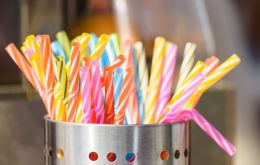
Plastic straws, drinks stirrers, and plastic-stemmed cotton buds will be banned in England from April 2020, British Environment Secretary Michael Gove said on Wednesday.
-
Saturday, May 11th 2019 - 09:59 UTC
Call for Evidence: UK program to support nature in British Overseas Territories
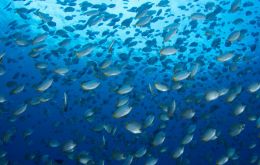
A ten week Call of Evidence was launched by the UK Government on Friday, to gather knowledge on safeguarding nature in the UK Overseas Territories. Many of the Overseas Territories are globally significant in their ecological richness, containing over 90% of UK’s marine and terrestrial nature. They are hotspots for biodiversity with an estimated 3,300 endemic species, but they are also highly vulnerable to environmental change.
-
Wednesday, May 8th 2019 - 09:56 UTC
US objections to climate change derail Arctic nations joint statement

US objections to the wording on climate change prevented Arctic nations signing a joint statement at a summit in Finland, delegates said. It is the first time such a statement has been cancelled since the Arctic Council was set up in 1996.
-
Tuesday, May 7th 2019 - 09:57 UTC
Human activities have put a million species at risk of extinction, says UN global biodiversity report
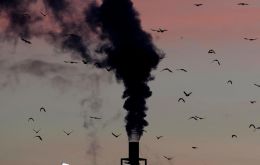
Human activities have put as many as one million other species at risk of extinction, according to the first comprehensive United Nations report on global biodiversity. The report, a summary of which was released on Monday, emphasizes humanity’s devastating impact on the natural world, which is accelerating extinctions at an unprecedented rate in human history.
-
Saturday, May 4th 2019 - 09:52 UTC
Antarctic Tour Operators introduce mandatory measures to prevent whale strikes

Members of the International Association of Antarctica Tour Operators (IAATO) have unanimously voted in mandatory measures to prevent whale strikes in cetacean-rich Antarctic waters during their annual meeting this year held in Cape Town, South Africa.
-
Friday, April 26th 2019 - 09:37 UTC
Brazilian ministry asks for an end to the list of endangered aquatic species
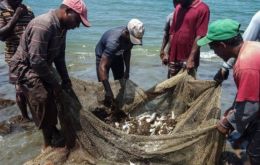
Brazil's agriculture minister has asked the minister of the environment to suspend the country's list of threatened and endangered aquatic species. “It's hurting fishermen”, Jorge Seif Júnior argued and will have a significant negative impact on the fishing economy.
-
Tuesday, April 23rd 2019 - 08:32 UTC
UK four nations with hottest Easter Monday on record, Met Office says

It has been the hottest Easter Monday on record in all four nations of the UK, the Met Office has said. England reached the highest temperature with 25C (77F) recorded at Heathrow, Northolt and Wisley.
-
Monday, April 22nd 2019 - 09:11 UTC
What is Earth Day, and what is it meant to accomplish?

On April 22, 1970, millions of people took to the streets to protest the negative impacts of 150 years of industrial development.
-
Monday, April 22nd 2019 - 09:10 UTC
Earth Day 2019: Protect our Species
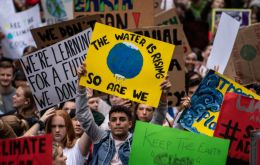
“In nature, nothing exists alone.” — Rachel Carson, 1962<br />
<br />
Nature’s gifts to our planet are the millions of species that we know and love, and many more that remain to be discovered. Unfortunately, human beings have irrevocably upset the balance of nature and, as a result, the world is facing the greatest rate of extinction since we lost the dinosaurs more than 60 million years ago. But unlike the fate of the dinosaurs, the rapid extinction of species in our world today is the result of human activity. -
Monday, April 22nd 2019 - 08:52 UTC
UN message on International Mother Earth Day

Mother Earth is a common expression for the planet earth in a number of countries and regions, which reflects the interdependence that exists among human beings, other living species and the planet we all inhabit.
